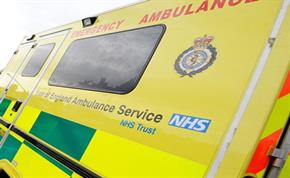
The NHS in England this week (15th February) committed to the biggest transformation of mental health care across the NHS in a generation, pledging to help more than a million extra people and investing more than a billion pounds a year by 2020/21.
It is making the move in response to the final report of an independent taskforce, chaired by the Chief Executive of Mind Paul Farmer, set up by the NHS as part of its Five Year Forward View to build consensus on how to improve services for people of all ages.
The taskforce gives a frank assessment of the state of current mental health care across the NHS, highlighting that one in four people will experience a mental health problem in their lifetime and the cost of mental ill health to the economy, NHS and society is £105bn a year.
In a wide ranging package of recommendations, it proposes a three-pronged approach to improving care through prevention, the expansion of mental health care such as seven day access in a crisis, and integrated physical and mental health care. At present only half of the country offers a 24/7 community-based mental health crisis service.
The taskforce suggests, and the NHS accepts, investing over £1bn a year of additional funding in NHS care by 2020/21 to reach one million more people – this investment is in addition to the previously announced new funding for children, young people and perinatal care.
It’s been shared this week that:
Simon Stevens, the Chief Executive of NHS England, said: “One in four of us will suffer from depression, anxiety or other mental health problem, but mental health services have historically been the NHS’ poor relation.
“Putting mental and physical health on an equal footing will require major improvements in seven day mental health crisis care, a large increase in psychological treatments, and a more integrated approach to how services are delivered. That’s what today’s taskforce report calls for, and it’s what the NHS is now committed to pursuing.”
Content credited to NHS England
Published 20th February, 2016